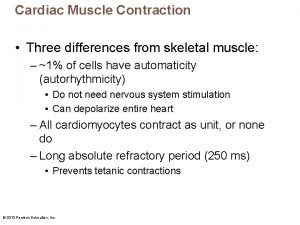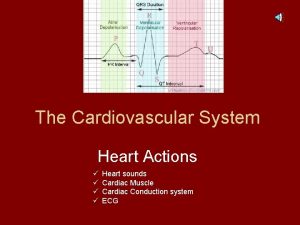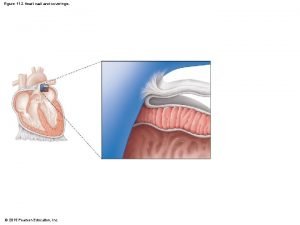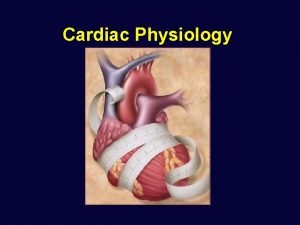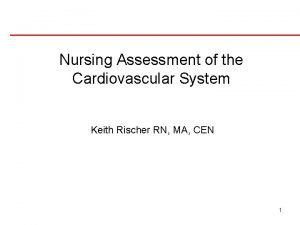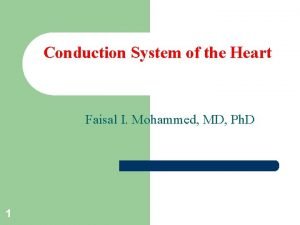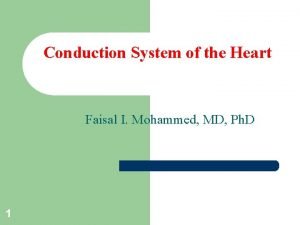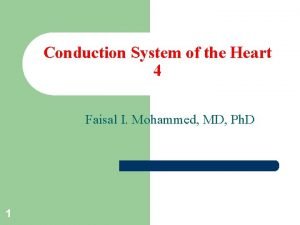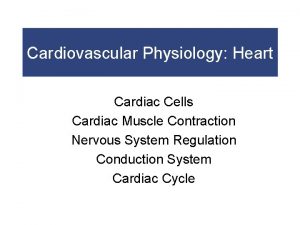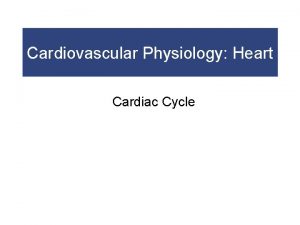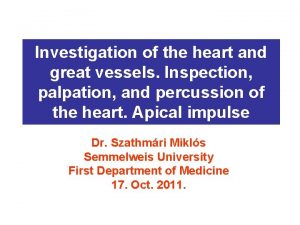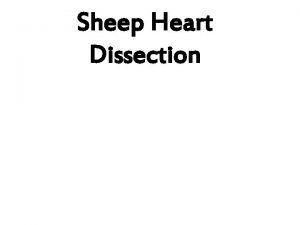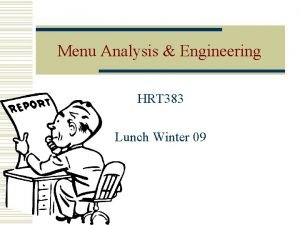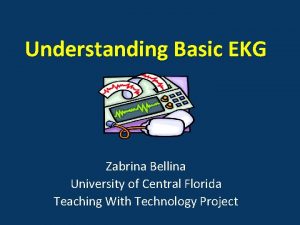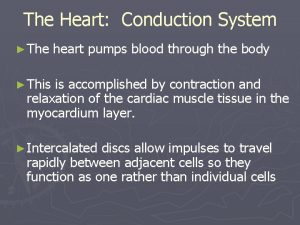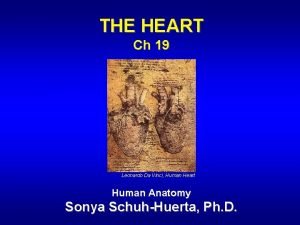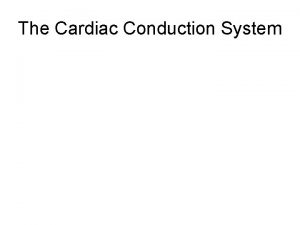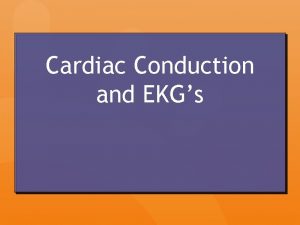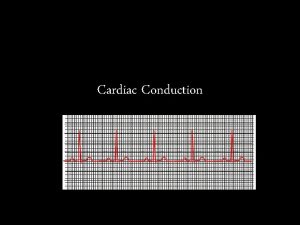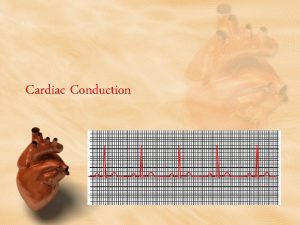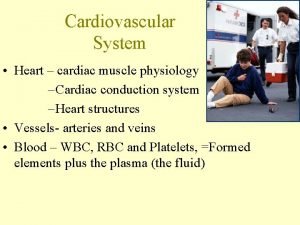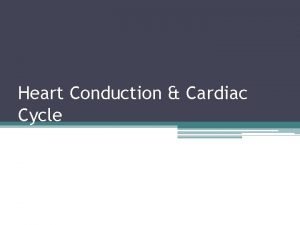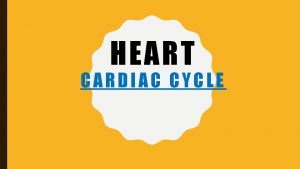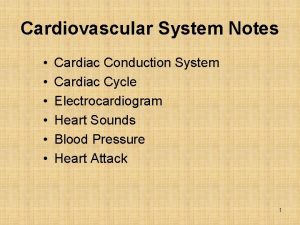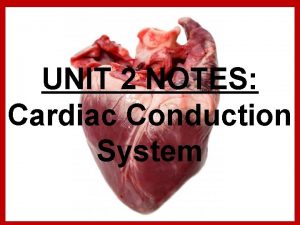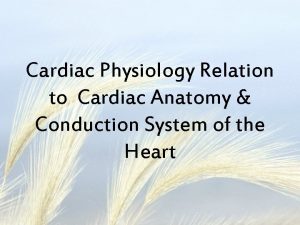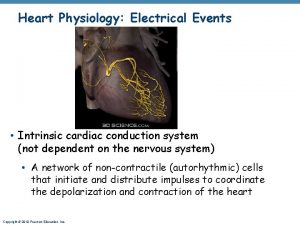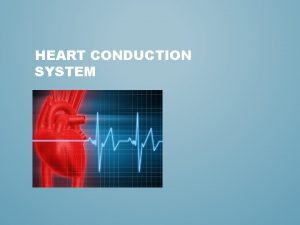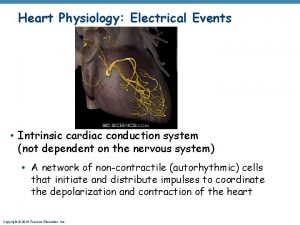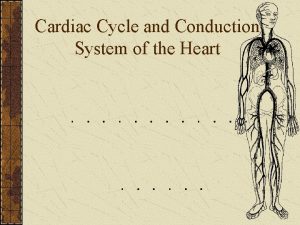Cardiac Conduction System 1 Conduction System of Heart















- Slides: 15

Cardiac Conduction System

(1) Conduction System of Heart • Conduction System = Heart Beat & Pumping • Cardiac Contractions = Unconscious – Autonomic Nervous System decrease or increase heart rate depending on circumstance

(2) Depolarization of the Heart • Generate Action Potential & Depolarization: – Atria Ventricles • Depolarization Path: 1. 2. 3. 4. SA Node AV Node Atria Contract (Delay) AV Bundle Ventricles Contract (Blood ejected out of arteries, leaving heart)

http: //highered. mcgrawhill. com/sites/0072495855/student_view 0/chapter 22/ani mation__conducting_system_of_the_heart. html

(3) Nodes & Bundles • Sinoatrial Node (SA Node) – Right atrium – Starts each heart beat & sets rate – “Pacemaker” • Atrioventricular Node (AV Node) = Left atrium • AV Bundle = – Bundle Branches (along septum) – Purkinje Fibers (along entire muscular wall of heart)


(4) Cardiac Cycle • Diastole = Relax – Blood passively filling atria • Systole = Contract – Ventricles contract – Blood Ejected out of heart


(5) Diastole 1. Ventricles relax 2. Semilunar valves closed 3. Ventricular Presure < Atrial Pressure – AV valves open – Ventricles fill with blood 4. Atria contract and force blood remaining in chambers into ventricles


(6) Systole 1. Pressure increases in ventricles - Filled with blood 2. AV valves close 3. Pressure in ventricles > Arteries leaving heart - Semilunar valves open Blood rushes out of ventricles 4. Atria are relaxed and begin to fill back up


(7) Heart Beat • You hear something like “lub” “dup” – “lub” = closing of AV valves • During ventricular systole – “dup” = closing of semilunar valves • During early diastole • You should NOT hear blood flow – You’ll hear it if flow is interrupted by blockage http: //www. csulb. edu/org/college/bme/respiratory _sounds/heart. wav

(8) Cardiac Output • Cardiac Output – Amount of blood pumped out by each ventricle / 1 minute – Cardiac Output = Heart Rate x Stroke Volume – CO = (HR)(SV) • Stroke Volume – Volume of blood pumped out by ventricle – Increase of SV = Increase of ventricular force + contraction • Average Stroke Volume = 0. 2 L • Average Cardiac Output = 15 L/min

(9) Starling’s Law • Starling’s Law of the Heart: – Degree of cardiac muscle extension before contraction – Increase Extension = Stronger Contraction – Degree of Extension result of percent filling of ventricles
 Intrinsic conduction system
Intrinsic conduction system Cardiac conduction
Cardiac conduction Figure 11-4
Figure 11-4 Refractory period heart
Refractory period heart Right ventricle failure
Right ventricle failure Conduction system of heart
Conduction system of heart Heart conducting system
Heart conducting system Conduction system of the heart
Conduction system of the heart Refractory period cardiac
Refractory period cardiac Cardiac output and heart rate
Cardiac output and heart rate Heart dullness
Heart dullness Superior vena cava pig heart
Superior vena cava pig heart Hrt to hrt merrylands
Hrt to hrt merrylands 300 150 100 ekg
300 150 100 ekg The conduction system
The conduction system The conduction system
The conduction system
